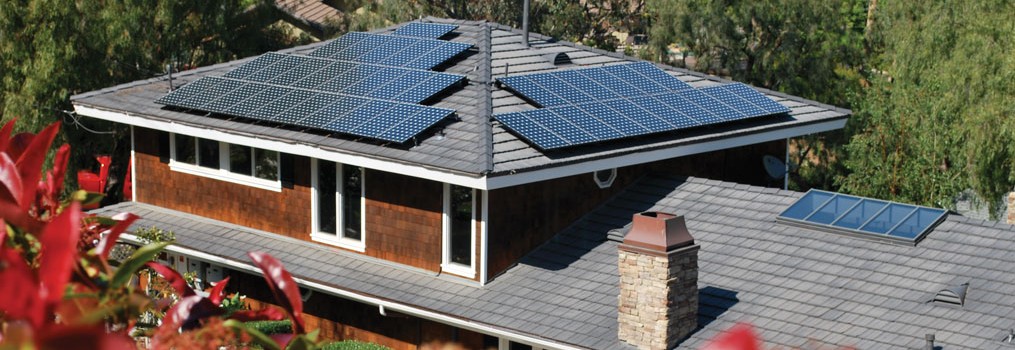Written by Chad Becker
In the article, “One year with solar energy at home: mostly sunny,” Kevin Tofel shares his solar experience and brings to light some things potential solar panel owners should be aware of.
Tofel lives in southeastern Pennsylvania, and after 12 months, his panels have generated 13.8 MW-hrs of electricity while his family has used only 7.59 MW-hrs. Tofel’s solar panels produce more energy than his family consumes. The excess energy is credited on Tofel’s electric bill, and the electric company pays him for any unused credit once per year.
Tofel also mentions a fork in the road on the way to buying a residential solar system. Solar panel owners have the option to remain connected to the electric grid or to completely sever ties. With the former option, the owner derives his/her power from the electric company while the solar panels provide electricity to the grid. The latter option results in complete independence from the grid. In this configuration, the solar panels provide all of the home’s power, and batteries must be used to store surplus energy. The disadvantage to cutting ties with the grid would have been an added 20 percent to Tofel’s up-front costs. However, if there is a power outage on the grid, the independent system will still provide power while the system connected to the grid will not. Before choosing either option, it is important to contemplate how often you expect to lose power.
Solar systems are not cheap, but there are several factors that substantially reduce their cost. After including the federal and state tax incentives, the payments received from generating surplus energy, and the increase is your home’s appreciation due to the solar panels, the cost of a residential solar system becomes much more reasonable. After installation, Tofel’s home increased in value by $30,000, and his break-even point is 7.3 years. For Tofel, the increase in his home’s value offset the amount of time to break even. An additional factor is the increase in electric prices. As electricity becomes more expensive, Tofel will receive more money for his surplus energy. This will shorten the payback period of his solar system.
Tofel is even considering the purchase of an electric vehicle due to his excess energy production. Tofel is using his solar panels to cut his costs on gasoline consumption.
Join Tofel and share in the joy of big savings and going green by visiting Swan Solar’s website for a free solar consultation and evaluation of your home. We have the most efficient solar panels on the market that will cut your costs on electricity usage. Maintain some level of sovereignty, and never pay for your electricity again!
